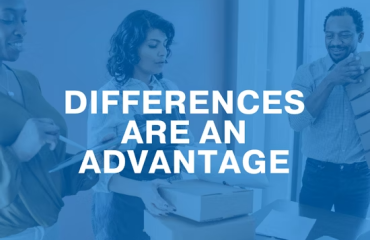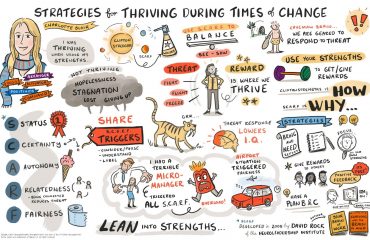
I happened to be rummaging through some draws last week and stumbled across an old school report from when I was 10 years old. It made rather depressing reading highlighting in the main all the things I didn’t do very well.
When somebody else points out the things you don’t do well, your weaknesses or flaws, how does that make you feel? If like me, pretty rubbish, not empowered and rather flat. How often does this happen, at home, at work – in performance reviews?
It makes me think about my children, when I see their report cards or scores for an assignment which comes though on an app! I try my best to focus on what’s is great and build upon that. We can’t just ignore the ‘not so good’ but we can find strategies to work around these.
Focus on Strengths and Manage around the Weakness
My report card includes comments such as:
“Her spelling lets her down”
“Her written work is not well thought out”
“She needs to take care to be more logical with her thought process”
“She should take particular care to read through her written work to be sure that it includes essential information and to correct careless mistakes”
Both my boys are Dyslexic like I am but in different ways. The eldest Harrison is a shocking speller (like his mother!) we have believed he was Dyslexic for a while but didn’t get him assessed until recently after the school indicated we would need an ‘official report’ to seek help in his VCE. The report came back that he would need help with ‘Explicit Synthetic Phonics’ so we engaged a speech therapist. Now again my misconception was that a speech therapist helped with speaking not spelling. 35 years ago, when I was diagnosed as Dyslexic there was no such supportive advice, you were often just labelled. After one Semester of weekly support this term Harrison has already come on leaps and bounds, developing strategies to help with spelling which frees up for time and brain power for the creative writing. We were all thrilled when he came home with an A for English a few weeks ago. Something I never achieved.
Focusing on Weakness doesn’t lead to success.
First, we have to clarify what a weakness is. Gallup define it as something that gets in the way of success. They believe that while failure can be avoided by focusing on weaknesses, excellence is only achieved when we focus on strengths
My spelling and attention to detail can get in the way of success and at least I am aware of it. At school to improve my spelling I was given lines where I had to write a sentence or word over 100 times. That strategy didn’t work.
I still struggle to spell words and even though spell check and software like Grammarly are a lifesaver sometimes they don’t understand what I am trying to say so I have to be creative with words. I often leverage the talents of others to peer review my work and pick up on these careless mistakes I am still making years on. Leveraging others and using systems like grammerly are ways of managing around.
Some strategies for managing weaknesses include:
- Creating open dialogue and transparency
- Intentionally leverage your strengths in a mature way
- Find support systems
- Build complementary partnerships
- Get the right education
- Set reasonable standards and just do it
- Adjust or change roles
Strengths do not take care of themselves.
Now I am not saying we just ignore weakness, no one can afford to do that but I am saying is that we often think about our strengths in the wrong way, as a given maybe or we are just not aware of how to use them to their full potential.
Imagine if Roger Federer said “well my forehand is great so I don’t need to focus on that anymore”. What would happen? You have to continue to work on your Strengths. For some people just identifying what they are is hard, which is why I love the CliftonStrengths Assessment tool https://www.gallupstrengthscenter.com/ One of the most cost-effective tools on the market for individual as well as team development. It identifies naturally recurring patterns of thought, feeling and behaviour that can be developed into strengths by adding experience, skills and knowledge.
Now let’s go back 35 years to those school reports.
School Report age 10
“She needs to check her work more thoroughly”
“She needs to think more carefully”
“She should plan more carefully”
“Charlotte needs to be more patient and take more care”
“Charlotte is keen to participate in class discussions but sometimes her comments would be helped by more careful thought before hand.”
As Gallup Accredited Strengths coach I am aware of my talents and am continuously working hard on turning them into Strengths, this work is never done. Discovery is just the start.
My number one talent is ACTIVATOR this is the Gallup definition:
People exceptionally talented in the Activator theme can make things happen by turning thoughts into action. They are often impatient.
“When can we start?” This is a recurring question for Activators. People with strong Activator talents are impatient for action. They may concede that analysis has its uses or that debate and discussion can occasionally yield some valuable insights, but deep down they know that only action is real. Once a decision is made, they must act. Others may worry that “there are still some things we don’t know,” but this doesn’t seem to slow Activators down. They make a decision, take action, look at the result, and learn. The bottom line is this: Activators know they will be judged not by what they say or what they think, but by what they get done. This does not frighten them. It energizes them.
CliftonStrengths Report
“Driven by your talents, you may be the member of the team who sometimes launches projects, starts meetings, or begins processes. Perhaps you reach a point where you tire of planning. This may be when you need to get busy and make something happen.”
School Report
“Her enthusiasm in class has not been matched by careful and through learning”
“She should realise that a quiet, patient attitude would pay dividends”
CliftonStrengths Report
“Chances are good that you sometimes inspire your teammates to be as enthused as you are about particular jobs, opportunities, events, causes, or ideas.”
“You are a catalyst. You naturally know how to turn ideas into action, and you make things happen. Your energy can be contagious and engaging.”
I know which one I prefer reading and makes me feel good about myself.
However, I am aware my biggest strengths can also be my biggest weaknesses if I don’t keep it in check, adjust the dial and leverage them in a mature way but all school saw was the weakness, not what could be. Even my CliftonStrengths report suggest to WATCH OUT FOR BLIND SPOTS
“Sometimes you might charge ahead and act without a solid plan. Before making a major decision, think about challenging yourself to consider alternatives and weigh options first.”
That is why we need complimentary partners to help us work around the bits we don’t do so well. My best partners are those who think and weigh up options, they help me stop charging ahead and I help them get moving, a perfect partnership and why I love working with teams helping teams discover their strengths and find ways to work together.
We can not be well rounded individuals, even if school does try and even pits us against others with tests and Naplan scores. We are all individually with unique ways of thinking, feeling and behaving.
CliftonStrengths is like a treasure map – it tells you where to start digging. But experience and application over time give you real understanding of your strengths and weaknesses.
You might go back to the map to orient yourself, but you want to focus on the application and experience of talents to develop them.
What if my report card read differently? What if this glimpse of strengths was spotted and nurtured at an early age?
Maybe dig out your own report card if you still have it, look for those glimpses of talent, the very early treasure map. Or if you have children do the same for them. If you’re a manager of people, help them discover their strengths. Instead of trying to fix their weaknesses, focus on their strengths by pulling out more of what is already there instead of trying to put in something that is not.
My friend and fellow Strengths Coach Brandon Miller has just written a fantastic book called ‘Play to their Strengths’ you can get your pre order copy here https://bit.ly/2KMaQuk
Gallup also have a great book called Strengths Based Parenting which includes a code for an Adult (CliftonStrengths Top 5) and child (age 11-14) to take the strengths assessment and has a great section in the back of the book for talent spotting in younger children. Order Here
Let me leave you with this Parable from Soar with your Strengths by Don Clifton and Paula Nelson
Let the Rabbits Run
Imagine there is a meadow. In than meadow there is a duck, a fish, an owl and a rabbit. They decide they want to have a school so the can be smart like people.
With the help of some grown-up animals they come up with a curriculum they believe will make a well-rounded animal.
Running
Swimming
Tree Climbing
Jumping and flying
On his first day of school, little Br’er rabbit combed his ears and went hopping off to his running class.
There he was a star. He ran to the top of the hill and back as fat as he could go and oh did it feel good. He said to himself; I can’t believe it. At school, I get to do what I do best.”
The instructor said “Rabbit, you really have a talent for running. You have great muscles in your rear kegs. With some training, you will get more out of every hop.”
The next class was swimming. When the rabbit smelled the chlorine, he said “wait, wait, Rabbits don’t like to swim.”
The instructor said “You might not like it now but in five years from know you’ll know it was a good thing for you.”
In the tree climbing class, a tree trunk was set at a 30 degree angle so all the animals had a chance to succeed. The little rabbit tried so hard he hurt his leg.
In jumping class, the rabbit got along just fine; in flying class, he had a problem. So, the teacher gave him a psychological test and discovered he belonged in remedial flying.
In the remedial flying class, the rabbit had to practice jumping off the cliff. They told him if he’d just work hard enough, he could succeed.
The next morning, he went on to swimming class. The instructor said “Today we jump into the water.”
“Wait, wait. I talked to my parents about swimming. They didn’t learn to swim. We don’t like to get went. I’d like to drop this course.”
The instructor said “You cant drop it. The drop and add period is over. At this point you have a choice: Either you jump in or you flunk.”
The rabbit jumped in. He panicked! He went down once. He went down twice. Bubbles came up. The instructor saw he was drowning and pulled him out. The other animals had never seen anything quite as funny as this wet rabbit who looked more like a rat without a tail and so they chirped and jumped and braked and laughed at the rabbit. The rabbit was more humiliated than he had ever been in his life. He wanted to desperately get out of class that day. He was glad when it was over.
He thought he would head home, that his parent would understand and help him. When he arrived he said to his parents. “I don’t like school. I want to be free.”
“If the rabbits are going to get ahead, you have to get a diploma,” replied his parents.
The rabbit said “I don’t want a diploma.”
The parents said “You’re going to get a diploma whether you want one or not.”
The argued and finally the parent made the rabbit go to bed. In the morning the rabbit headed off to school with a slow hop. Then he remembered the principal had said that counsellor’s door is always open.
When he arrived at school, he hopped up in the chair by the counsellor and said :I don’t like school.’
And the counsellor said, “Mmm, tell me about it:
And the rabbit did.
The counsellor said “Rabbit, I hear you. I hear you saying you don’t like school because you don’t like swimming. I think I have diagnosed that correctly. Rabbit. I tell you what I’ll do. Your doing just fine in running. I don’t know why you need to work on running. What you need to work on is swimming. I’ll arrange it so you don’t have to go running anymore and you can have two periods of swimming.”
When the rabbit heard that, he just threw up!
As the rabbit hopped out of the counsellors office, he looked up and saw his old friend the Wise Old Owl, who cocked his head and said. ‘Br’er rabbit, life doesn’t have to be that way. We could have schools and businesses where people are allowed to concentrate in what they do well.”
Br’re rabbit was inspired. He thought when he graduated, he would start a business where rabbits would do nothing but run, the squirrels could climb trees and the fish could just swim. As he disappeared into the meadow, he sighed softly to himself and said “Oh, what a great place that would be.”




